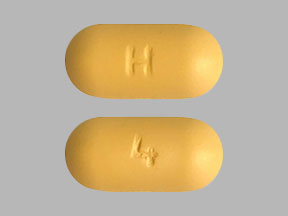Efavirenz Disease Interactions
There are 4 disease interactions with efavirenz.
Efavirenz (applies to efavirenz) liver disease
Moderate Potential Hazard, Moderate plausibility.
Efavirenz is not recommended for patients with moderate or severe liver dysfunction; insufficient data are available to determine whether dose adjustment is needed. Patients with mild liver dysfunction may receive efavirenz without dose adjustment. Due to extensive CYP450-mediated metabolism and limited clinical experience in patients with liver dysfunction, therapy with efavirenz should be administered cautiously in patients with mild liver dysfunction; careful monitoring is recommended for these patients. In addition, postmarketing cases of hepatitis (including fulminant hepatitis progressing to liver failure requiring transplantation or resulting in death) have occurred during therapy with efavirenz; reports have included patients with underlying liver disease (including coinfection with hepatitis B or C). Monitoring of liver enzymes before and during therapy is recommended for all patients.
Efavirenz (applies to efavirenz) mental symptoms
Moderate Potential Hazard, Moderate plausibility. Applicable conditions: Depression, Psychosis, Alcoholism, History - Psychiatric Disorder, Drug Abuse/Dependence
During clinical trials, efavirenz was associated with an increase in the occurrence of serious psychiatric events, including severe depression, suicidal ideation, nonfatal suicide attempts, aggressive behavior, paranoid reactions, and manic reactions. Other factors associated with an increased occurrence of these psychiatric symptoms were history of injectable drug use, psychiatric history, or use of psychiatric medications at study entry; similar associations were observed in the efavirenz and control groups. Therapy with efavirenz should be administered cautiously in patients with current/history of psychiatric illness, emotional instability, or substance abuse. Patients with serious psychiatric adverse reactions should receive prompt medical evaluation to assess the possibility that symptoms are related to efavirenz use, and if so, to determine whether the risks of continued therapy outweigh the benefits.
Efavirenz (applies to efavirenz) QT prolongation
Moderate Potential Hazard, Moderate plausibility. Applicable conditions: Long QT Syndrome
QTc prolongation has been observed with the use of efavirenz. Alternatives to efavirenz should be considered when administered to patients at higher risk of torsade de pointes or when coadministered with a medication with known risk of torsade de pointes.
Efavirenz (applies to efavirenz) seizures
Moderate Potential Hazard, Moderate plausibility.
Convulsions have been observed in adult and pediatric patients receiving efavirenz, generally in the presence of known medical history of seizures. Caution should be taken with any patient with history of seizures. Anticonvulsant medications primarily metabolized by the liver (e.g., phenytoin, phenobarbital) may require periodic monitoring of plasma levels.
Switch to professional interaction data
Efavirenz drug interactions
There are 886 drug interactions with efavirenz.
Efavirenz alcohol/food interactions
There is 1 alcohol/food interaction with efavirenz.
More about efavirenz
- efavirenz consumer information
- Check interactions
- Compare alternatives
- Pricing & coupons
- Reviews (8)
- Drug images
- Side effects
- Dosage information
- During pregnancy
- Drug class: NNRTIs
- Breastfeeding
- En español
Related treatment guides
Drug Interaction Classification
| Highly clinically significant. Avoid combinations; the risk of the interaction outweighs the benefit. | |
| Moderately clinically significant. Usually avoid combinations; use it only under special circumstances. | |
| Minimally clinically significant. Minimize risk; assess risk and consider an alternative drug, take steps to circumvent the interaction risk and/or institute a monitoring plan. | |
| No interaction information available. |
See also:
Further information
Always consult your healthcare provider to ensure the information displayed on this page applies to your personal circumstances.


